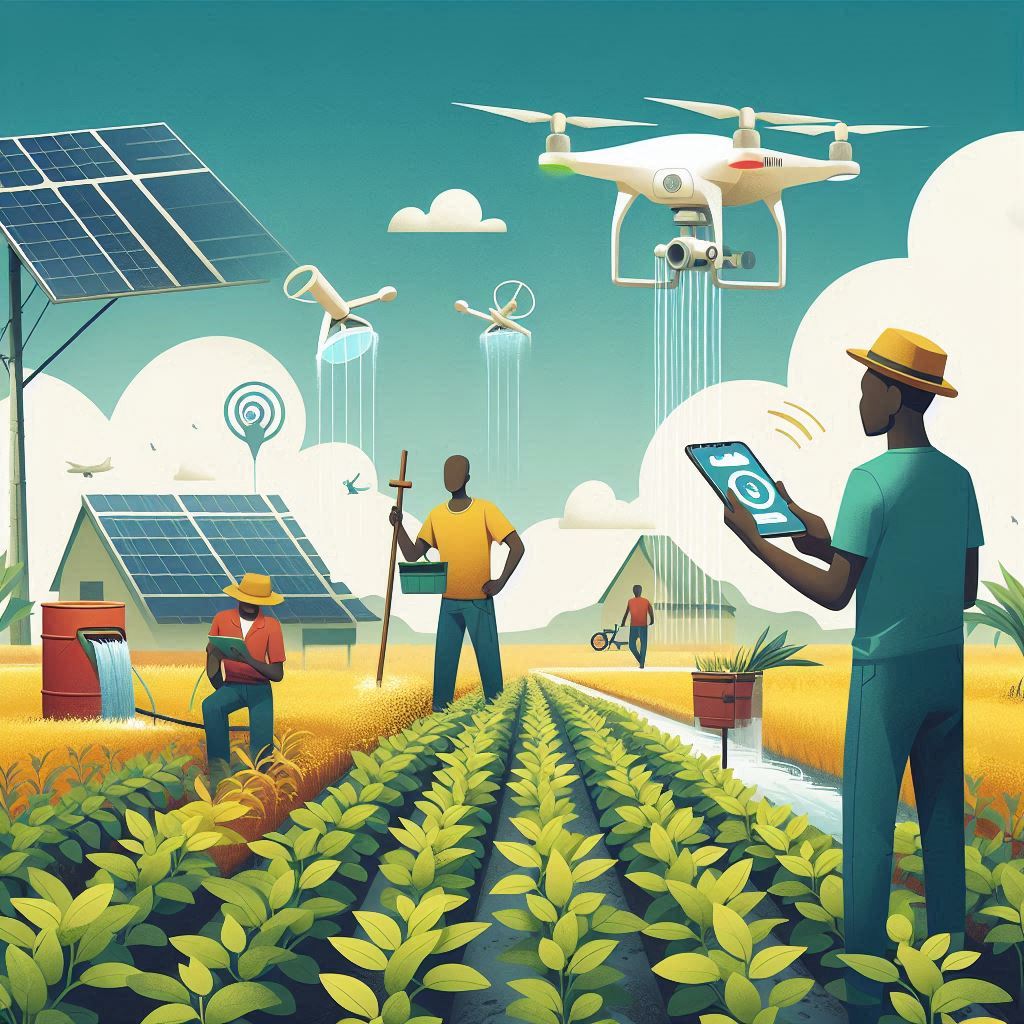
In the dynamic landscape of agribusiness, precision agriculture stands out as a game-changer, offering unparalleled benefits that drive productivity, sustainability, and profitability. For farmers in Nigeria and across Africa, adopting precision agriculture is not just an option; it’s a necessity for staying competitive in the global market. This article explores the transformative power of precision agriculture and provides verifiable examples of its success across the continent.
What is Precision Agriculture?
Precision agriculture involves the use of advanced technologies like GPS, IoT, drones, and data analytics to monitor and manage farming practices with unprecedented accuracy. By leveraging these technologies, farmers can optimize their use of resources, enhance crop yields, and reduce environmental impact.
Key Benefits of Precision Agriculture
1. Enhanced Productivity and Yield
Precision agriculture enables farmers to apply inputs such as water, fertilizers, and pesticides more accurately, ensuring that crops receive the right amount at the right time. This targeted approach leads to significant improvements in crop yields.
Example: In Kenya, a project by the International Maize and Wheat Improvement Center (CIMMYT) used precision agriculture techniques to increase maize yields by up to 50%. By employing GPS-guided soil sampling and variable-rate technology (VRT) for fertilizer application, Kenyan farmers achieved higher productivity and reduced input costs.
2. Resource Efficiency
Efficient use of resources is a cornerstone of precision agriculture. By monitoring soil moisture levels and weather conditions, farmers can optimize irrigation schedules, reducing water usage and preventing wastage.
Example: In South Africa, the University of Pretoria implemented a precision irrigation system on a vineyard. The system, which uses soil moisture sensors and automated irrigation, resulted in a 20% reduction in water use while maintaining grape quality and yield.
3. Cost Reduction
Precision agriculture reduces the need for excessive inputs, cutting down on costs associated with seeds, fertilizers, pesticides, and water. This cost-saving advantage is particularly beneficial for smallholder farmers.
Example: In Nigeria, the Nigeria Institute for Oil Palm Research (NIFOR) introduced precision farming techniques to oil palm farmers. By using drones for aerial spraying and monitoring, farmers reduced pesticide use by 30%, leading to substantial cost savings and healthier crops.
4. Improved Soil Health
Regular monitoring and precise application of inputs help maintain soil health by preventing over-fertilization and minimizing chemical runoff. This sustainable approach ensures long-term agricultural productivity.
Example: In Ghana, cocoa farmers participating in a precision farming initiative saw improvements in soil health and fertility. The project, supported by the Cocoa Research Institute of Ghana (CRIG), involved soil testing and tailored fertilizer recommendations, resulting in healthier cocoa trees and better yields.
5. Environmental Sustainability
Precision agriculture promotes sustainable farming practices by minimizing environmental impact. Reduced chemical use and better water management help preserve local ecosystems and biodiversity.
Example: In Ethiopia, the Digital Green project leverages mobile technology to provide farmers with real-time data on weather conditions and pest outbreaks. This information helps farmers make informed decisions, reducing the need for chemical interventions and promoting environmentally friendly practices.
6. Data-Driven Decision Making
Access to real-time data empowers farmers to make informed decisions about their crops and livestock. Precision agriculture tools provide insights into crop health, growth patterns, and potential issues, enabling proactive management.
Example: In Tanzania, the Sokoine University of Agriculture developed a mobile app that integrates satellite imagery and ground data to monitor crop health. Farmers using the app reported a 15% increase in crop yields due to timely interventions based on the app’s recommendations.
Conclusion
The adoption of precision agriculture in Africa is not just about keeping up with technological advancements; it’s about revolutionizing the way farming is done to ensure sustainability, profitability, and food security. By embracing these technologies, African farmers can transform their agricultural practices, leading to a brighter and more prosperous future for agribusiness across the continent.
Call to Action:
Are you ready to transform your farming practices with precision agriculture? Stay ahead of the curve and join the movement towards smarter, more efficient, and sustainable farming. Subscribe to our blog for the latest insights, success stories, and practical tips on integrating precision agriculture into your agribusiness. Take the first step towards a more productive and profitable future today!

